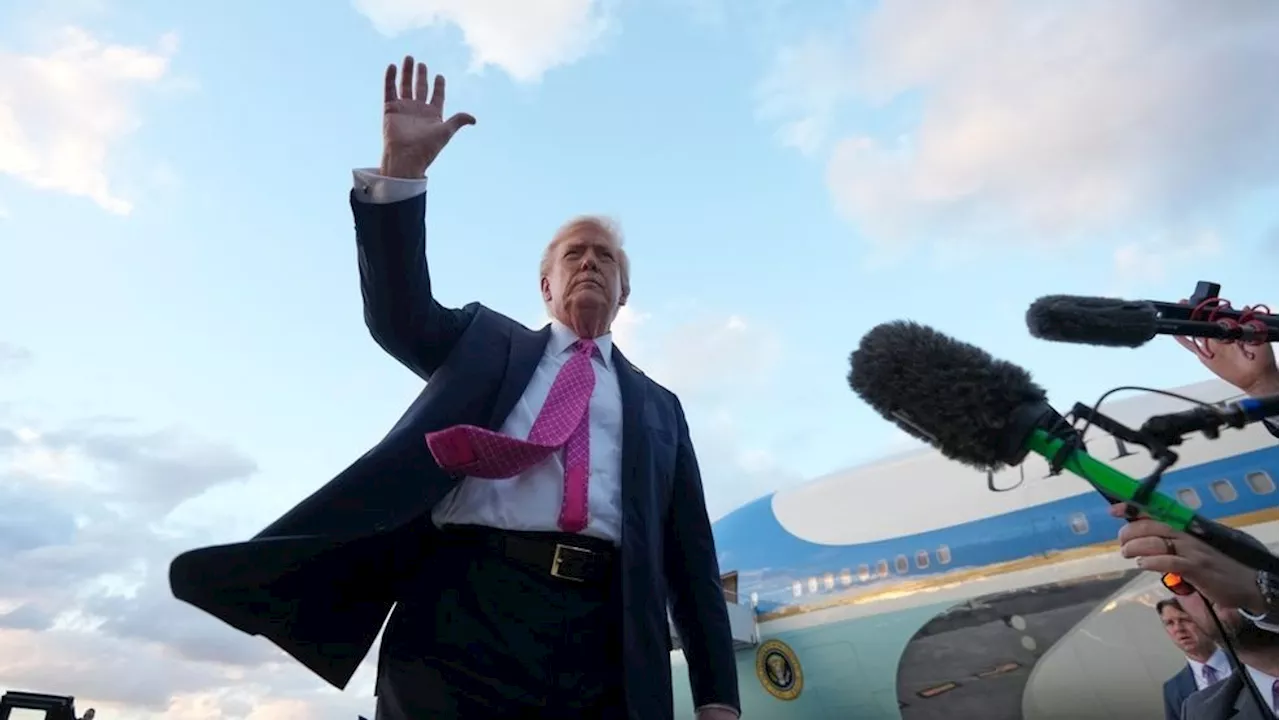Business
Trump Proposes Tariffs on Colombia Amid Legal Turmoil

The Trump administration has announced potential new tariffs on Colombia, escalating trade tensions as it navigates ongoing legal challenges related to its authority to impose tariffs. This development comes as the administration adjusts existing trade policies while facing scrutiny from the U.S. Supreme Court concerning the legality of its tariff practices.
Trade policy modifications have become a hallmark of the administration’s strategy since the initial rollout of tariffs in April 2023. The proposed tariffs reflect a response to what President Donald Trump characterizes as Colombia’s insufficient action against drug trafficking. The announcement highlights the intertwining of international trade relations and domestic legal battles.
Trade Policy Adjustments and Exemptions
In a bid to refine its tariff strategies, the White House has exempted several products from tariffs, including specific lumber and metal items, which are deemed to be “largely unavailable natural resources.” This selective exemption indicates the administration’s recognition of the delicate balance between trade policies and the availability of resources essential for domestic manufacturing.
The administration has also invoked trade laws such as Section 232 to impose new tariffs on imported vehicles, including trucks and buses. Businesses have largely managed to absorb the costs of these tariffs thus far, but there are increasing concerns that this approach may not be sustainable over time. Economic analysts are closely monitoring the situation, as there is a possibility that these costs could eventually be passed on to consumers in the form of higher prices.
Legal Challenges and Economic Implications
Compounding the situation, the Trump administration is currently defending its authority to impose extensive tariffs in front of the Supreme Court. A significant hearing is set for early November 2023, which will address the extent of presidential power in implementing these tariffs. A ruling against the administration could lead to the elimination of approximately 70% of the tariffs currently in place and require the U.S. to refund an estimated $165 billion in tariff revenue.
The implications of the Supreme Court’s decision could reverberate throughout the economy, influencing both businesses and consumers. President Trump has expressed strong opinions regarding the potential outcomes, underscoring the high stakes involved. This ongoing legal battle exemplifies the complexities of international trade, legal authority, and political rhetoric, creating an atmosphere of uncertainty in economic relations.
As the administration continues to navigate its approach to tariffs on Colombia and other nations, the outcomes of these legal challenges will undoubtedly shape the future of U.S. trade policies. The situation reflects not only the administration’s economic strategy but also highlights the intricate dynamics of global trade and diplomacy.
-

 Science2 weeks ago
Science2 weeks agoIROS 2025 to Showcase Cutting-Edge Robotics Innovations in China
-

 Politics2 weeks ago
Politics2 weeks agoJudge Considers Dismissal of Chelsea Housing Case Citing AI Flaws
-

 World2 weeks ago
World2 weeks agoBravo Company Veterans Honored with Bronze Medals After 56 Years
-

 Lifestyle2 weeks ago
Lifestyle2 weeks agoStone Island’s Logo Worn by Extremists Sparks Brand Dilemma
-

 Top Stories2 weeks ago
Top Stories2 weeks agoIndonesia Suspends 27,000 Bank Accounts in Online Gambling Crackdown
-

 Health2 weeks ago
Health2 weeks agoStartup Liberate Bio Secures $31 Million for Next-Gen Therapies
-

 Sports2 weeks ago
Sports2 weeks agoMel Kiper Jr. Reveals Top 25 Prospects for 2026 NFL Draft
-

 World2 weeks ago
World2 weeks agoHoneywell Predicts Record Demand for Business Jets Over Next Decade
-

 Health2 weeks ago
Health2 weeks agoTop Hyaluronic Acid Serums for Radiant Skin in 2025
-

 Sports2 weeks ago
Sports2 weeks agoYamamoto’s Mastery Leads Dodgers to 5-1 Victory in NLCS Game 2
-

 Politics2 weeks ago
Politics2 weeks agoNew Jersey Voters Urged to Register Ahead of November Election
-

 Lifestyle2 weeks ago
Lifestyle2 weeks agoMary Morgan Jackson Crowned Little Miss National Peanut Festival 2025









